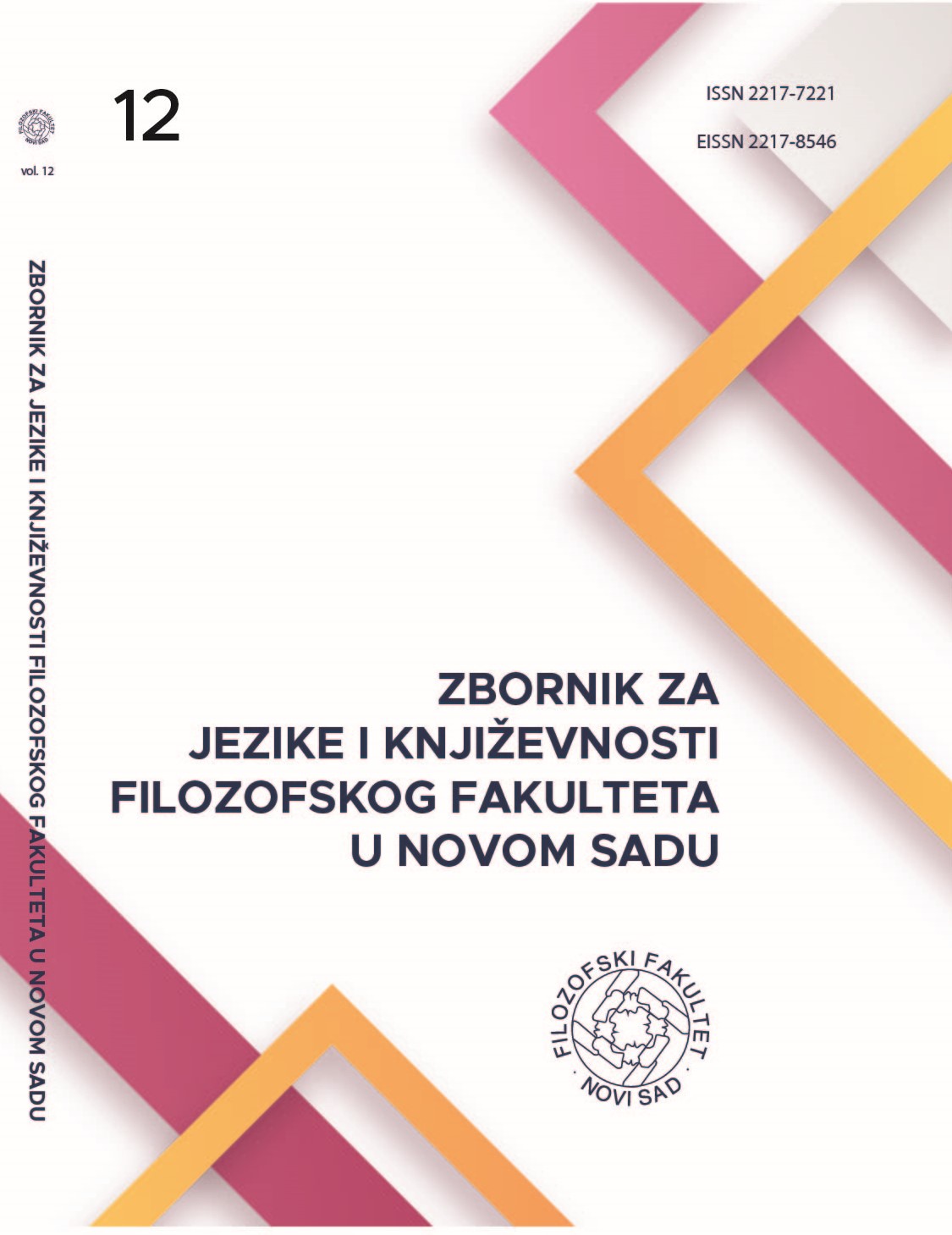ANALIZA SINTAKSIČKIH ELEMENATA NEOSTANDARDNOG
ITALIJANSKOG JEZIKA U DVA SAVREMENA ITALIJANSKA
ROMANA: IO E TE, N. AMANITIJA I ESCO A FARE DUE PASSI, F.
VOLA
ANALYSIS OF THE SYNTAX ELEMENTS OF THE NEO-STANDARD ITALIAN LANGUAGE IN TWO CONTEMPORARY ITALIAN NOVELS: IO E TE BY N. AMMANITI AND ESCO A FARE DUE PASSI BY F. VOLO
Author(s): Marija N. VujovićSubject(s): Language and Literature Studies, Studies of Literature, Italian literature
Published by: Филозофски факултет, Универзитет у Новом Саду
Keywords: Italian language; neostandard; syntax; Nicolo Amaniti; Fabio Volo
Summary/Abstract: If the Italian standard is a reference model for the correct use of language, since it is subject to normative codification, then the neostandard is a new and informal variety of the Italian language, present in the spoken language for decades, but censored in grammars. Despite that, it is noticeable how much this linguistic variety is an integral part of contemporary Italian literature. This paper analyzes two contemporary Italian novels (Io e teby Niccolò Ammaniti and Esco a fare due passiby Fabio Volo) in order to find the basic syntactic characteristics of neostandard. The selected authors represent a kind of antipodes, and hereof their texts provide an ideal framework for research. The analysis of the novels showed that the most common syntactic characteristics of the neostandard are: left-dislocation, right-dislocation, construction: presentativec’è, cleft sentence, displacement of the clinical pronoun, use of the conjunctions ma andeand parataxis. In the novels the examples of neostandard don’t predominate over the canonical syntax of standard. In addition, the examples of neostandard appear most often in the protagonist's dialogues, in the context in which the authors try to achieve communicative immediacy and make the dialogues closer to the readers, in order to give the text the character of everyday speech. However, the syntactic elements of the neostandard are so numerous and equally present in two completely different literary works, that this phenomenon can not longer be considered wrong, nor ignored as a linguistic variety that deviates from the codified grammatical norm.
Journal: Zbornik za jezike i književnosti Filozofskog fakulteta u Novom Sadu
- Issue Year: 12/2022
- Issue No: 12
- Page Range: 111-131
- Page Count: 20
- Language: Serbian

